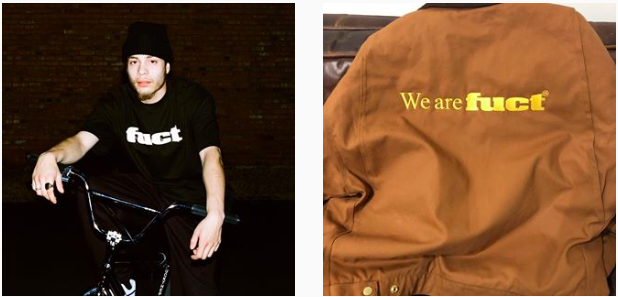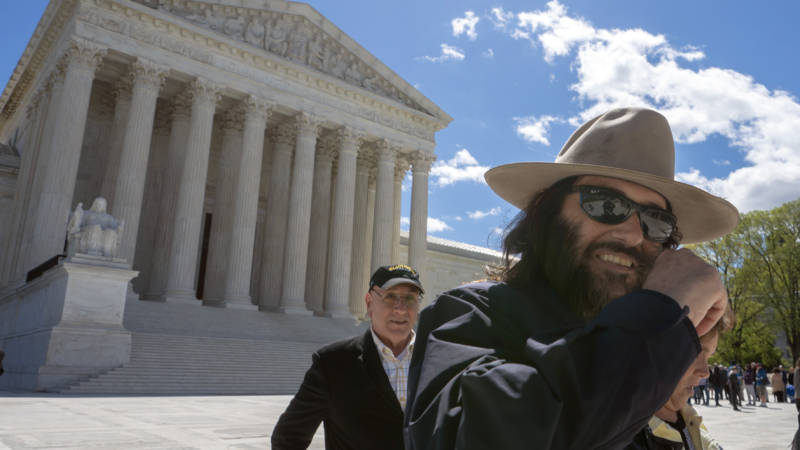Justice Neil Gorsuch pointed to the chart, declaring that it was hard to see why certain trademarks either using or alluding to profanity were approved and others denied.
Justice Samuel Alito asked what would happen when “really dirty words” were at issue. How about “racial slurs”? asked Justice Stephen Breyer, adding those are more like “swear words,” as they are insults that sting and are remembered by those who are targeted.
Stewart replied that because of the court’s decision in the “Slants” case, most trademarks with racial slurs are now approved. But the most offensive slur, the N-word, for now is still not approved, he said.
Representing “FUCT” designer Brunetti, lawyer John Sommer didn’t have an easy time either. Justice Breyer had this question: Why doesn’t the government have the right to say, in essence, “You can use this language in your brand name, but the government doesn’t want to be associated with it by granting trademark protection?”
“What I’m worried about,” said Breyer, is that if a racial slur is trademarked, it will appear as a product name “on every bus where it’s advertised” and on newsstands where children and others will see it.
“That’s not the audience Mr. Brunetti is appealing to,” Sommer replied.
Chief Justice John Roberts interjected, “But that may not be the only audience he reaches.”
At the end of his argument, Sommer returned to the language of the statute, arguing that if “offensiveness” is the standard for turning down a trademark, “Steak ‘n Shake” can’t be registered either, because “a substantial portion of Americans believe that eating beef is immoral.”
A decision in the case is expected by summer.
Copyright 2019 NPR.


